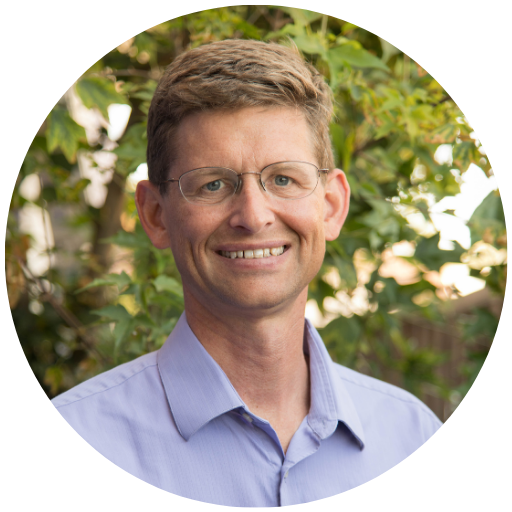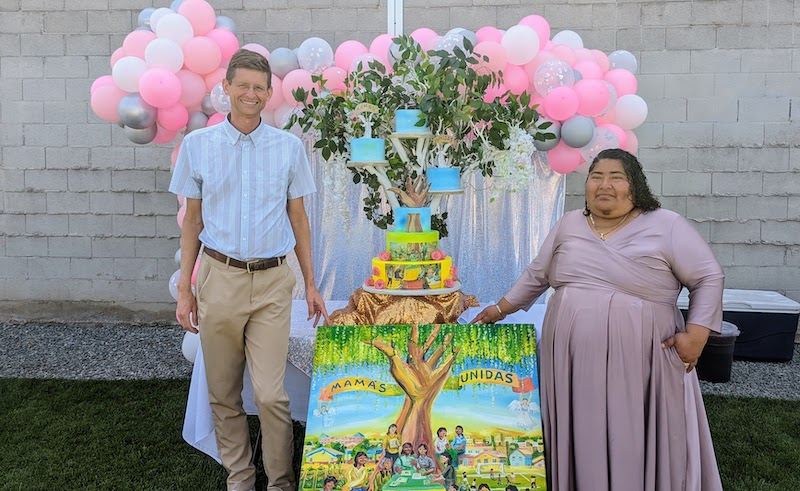In the Light of Eternity
Do you ever think about what eternity means? Never starting, never ending, infinite. Blaise Pascal, the 17th century mathematician and philosopher, used to imagine the infinite. He wrote in his posthumously published Pensees about these imaginings – what if the tiniest particles of matter were entire worlds, tiny planets orbiting around a center with little tiny animals living on them, and what if our own universe was a tiny particle of another universe, like if the earth was a planetary electron and the sun was a nucleus of some random atom in a table leg somewhere in another world?
Our earthly lives occupy an infinitesimally small moment in the entirety of eternity. We are tiny and insignificant in both dimensions, space and time.
And if reality is truly infinite, then time itself is part of the curse.
In medicine, in our current evidence-based mindset, scientists constantly study new treatments to see if they work, and to determine which one is better. In order to know that, they have to have “outcome measures,” which can be anything – lab results, questionnaires, or whatever – but everyone’s favorite outcome measure is mortality. If a new medicine prevents mortality, all of the experts want us to put everyone on that medicine.
Mortality. We want to prevent it. Aging, sickness, trauma, death… Somehow we know deep down that it isn’t natural. We sense we were really made for life, vitality, health, and eternity.
One of my best friends, Maria Marcelo, was tragically killed on Dec 7th, 2022.
My mom called me to talk about it, and of course I cried, recalling the power of Maria’s fierce love, and mama said these deaths get us ready for heaven, because we want to see the great people again so badly.
Maria loved everyone. Disabled people. Children. Old people. Annoying people. Politicians. Police officers. Homeless people. Me. People would walk into our clinic and march straight past me into her office with their impossible problems (more often than not, self-imposed) which involved domestic violence, homelessness, legal problems, job losses, immigration problems, drug problems, kid problems, gang affiliations, suicides, and more; and Maria would treat them like they were kings and queens who deserved every ounce of her attention. She would drop everything and do whatever it took to help them solve their problems. Then, pretty soon she would need something from them – a ride, a volunteer, an assistant, a cook for some upcoming event – and before long they were roped into the community. Scoundrels, homeless people, newly arrived immigrants, ex-cons, people with serious cognitive limitations, arrogant over-educated privileged people who thought they were God’s gift to everything, we were all needed in Maria’s world. Some ended up living with her for a while. Many considered her to be a second mother. She took the second mother job seriously, and would scold people just as quickly as she would pull them to her bosom in a huge hug. She was a drill sergeant, a bulldog, and a best friend all rolled into one. She was also famous; every elected official in Silicon Valley (the powerhouse of the world) knew her and respected her and sometimes feared her. I miss her so much!
No one can say with scientific certainty what happens after death. This is where faith comes in, because there really isn’t an evidence-based way to know. No experiment can tell us. But “faith is being sure of what we hope for and certain of what we do not see.” It’s funny how Maria’s death gives me more faith. I desperately want to see my dear friend again, and I have faith that I will. It’s ok to believe in things we can’t see. There is no evidence for it, but there is no evidence against it either. Literally no living person really knows what happens after we die. Faith is a choice, and it’s a reasonable one.
Maria’s last week was phenomenal, but also pretty typical for this great lady.
On Friday, she taught us on the topic of “Worshiping God” from the Catholic Catechism in our weekly staff Bible study. On Saturday she hosted a Christmas store where scores of low income families bought nice gifts for their children for $2 and wrote them encouraging letters to read at Christmas. She herself wrote a letter to a good friend encouraging her in her faith. The day before she died, she hosted a special Christmas party for her homeless friends, whom she had been visiting every week for 1.5 years, and told her volunteers, “Let’s take pictures together with each person and print them out for them.” Dozens of people have stories of her calling them and encouraging them in the days and hours before her death. She was so full of joy, and after a life marked by conflict, miraculously she was at peace with pretty much everyone. She was leading spiritual pilgrimages all over the neighborhood and prayed and shared the Gospel – planned for 9 nights in a row; on the 8th night she was hit by a car at high speed and died instantly.
From the perspective of the Curse, her 47 years were way too short. From the perspective of Eternity, her earthly life was well lived, has come and gone, and now she is alive with Christ.
Contrary to popular belief, the bible teaches us that eternal life isn’t automatic. Maria wanted everyone to find this life. In fact, she was sharing the Gospel – the good news about how to find eternal life – when she died. She died leading 75 people on a prayer walk – what a way to go!
It isn’t automatic but it is free. It is reasonable to choose to have faith, and it is life-changing to choose to follow Jesus and choose eternal life. This simple decision, submitting to life the Jesus way, allows you to be changed from the inside, not from your own power but from God. Just like a seed grows into a plant without us pulling it up, the decision to choose faith in Jesus turns us into Maria-like people without any outside help. We turn into people who love God and love our neighbors, who forgive people who hurt us, who give generously to the poor, who elevate scoundrels to places of respect and honor with God’s grace. All you have to do is to humbly admit that you are a sinner in need of saving, and asking God for forgiveness, and say that you will follow Jesus from now on. Tell it to God out loud (this is prayer), and tell someone that you did it, and get connected with other believers, then watch the transformative growth happen in your life.
Our light and momentary troubles are achieving for us an eternal glory which far outweighs them all.
– 2 Corinthians 4:17

